Stomach Cancer Treatment Cost in South Africa from top hospitals starts from USD 28500 approx.
Cancer is a disease where cells start to grow abnormally and form a tumor. When this condition develops in the stomach, it is known as Stomach Cancer.
It can be anywhere in the stomach, that may cause various symptoms and tend to have several outcomes. These cancers develop slowly and take several years to be able to identify.
There are many types of stomach cancer such as Adenocarcinoma, Lymphoma, Gastrointestinal stromal tumor (GIST), Carcinoid tumor and as mentioned earlier symptoms for each may vary.
Since it develops slowly, early-stage stomach cancer hardly shows any causes or symptoms. This makes it hard to detect early but one can keep an eye on a few of the points which could be a sign of stomach cancer such as:
The above symptoms could be the sign of Ulcer or some other issues but if anyone has these problems must go to the doctors for a complete check-up so that it can be treated.
Below are the major factors affecting the cost of Stomach Cancer treatment. Thus, the early detection of stomach cancer can reduce the economic burden.
Treatment cost
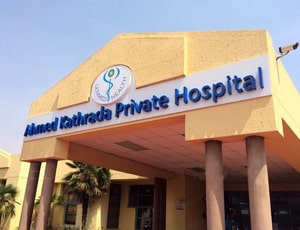
Apart from in-detail treatment procedures available, Lenmed Ahmed Kathrada Private Hospital located in Johannesburg, South Africa has a wide variety of facilities available for International Patients. Some of the facilities which are provided by them are Accommodation, Airport Transfer, Choice of Meals, Interpreter, SIM, TV inside room. Also listed below are some of the most prominent infrastructural details:

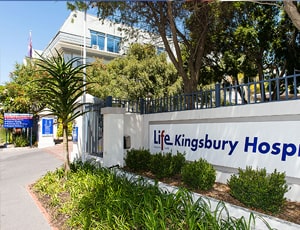
Apart from in-detail treatment procedures available, Life Kingsbury Hospital located in Cape Town, South Africa has a wide variety of facilities available for International Patients. Some of the facilities which are provided by them are Accommodation, Airport Transfer, Choice of Meals, Interpreter, SIM, TV inside room. Also listed below are some of the most prominent infrastructural details:
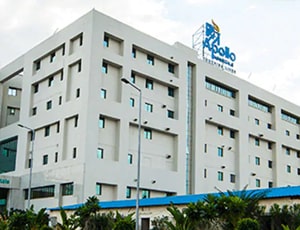
Types of Stomach Cancer Treatment in Apollo Hospital and its associated cost
| Treatment Option | Approximate Cost Range (USD) | Approximate Cost Range (INR) |
|---|---|---|
| Stomach Cancer Treatment (Overall) | 8869 - 13341 | 742914 - 1124430 |
| Surgery | 4957 - 8870 | 409624 - 750552 |
| Chemotherapy | 2225 - 5580 | 186892 - 456594 |
| Radiation Therapy | 1699 - 4547 | 136805 - 370172 |
| Immunotherapy | 3357 - 7795 | 278231 - 637524 |
| Targeted Therapy | 2807 - 8981 | 231866 - 740677 |
| Palliative Care | 1129 - 3924 | 93471 - 318712 |
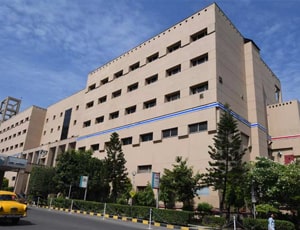
Types of Stomach Cancer Treatment in Apollo Multispecialty Hospitals and its associated cost
| Treatment Option | Approximate Cost Range (USD) | Approximate Cost Range (INR) |
|---|---|---|
| Stomach Cancer Treatment (Overall) | 8922 - 13725 | 752094 - 1085096 |
| Surgery | 5124 - 8981 | 405953 - 737658 |
| Chemotherapy | 2266 - 5733 | 187220 - 469329 |
| Radiation Therapy | 1681 - 4529 | 141264 - 361084 |
| Immunotherapy | 3323 - 7786 | 281301 - 656714 |
| Targeted Therapy | 2872 - 8923 | 231556 - 748298 |
| Palliative Care | 1114 - 4000 | 91280 - 324258 |
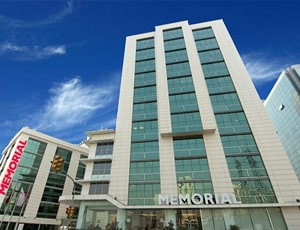
Types of Stomach Cancer Treatment in Memorial Atasehir Hospital and its associated cost
| Treatment Option | Approximate Cost Range (USD) | Approximate Cost Range (TRY) |
|---|---|---|
| Stomach Cancer Treatment (Overall) | 4525 - 11163 | 135467 - 345401 |
| Surgery | 3321 - 7721 | 101671 - 232448 |
| Chemotherapy | 2864 - 6600 | 84507 - 203941 |
| Radiation Therapy | 2217 - 5713 | 68445 - 171933 |
| Immunotherapy | 4520 - 9031 | 134109 - 269755 |
| Targeted Therapy | 3904 - 10327 | 120718 - 302030 |
| Palliative Care | 1724 - 4459 | 50634 - 137574 |
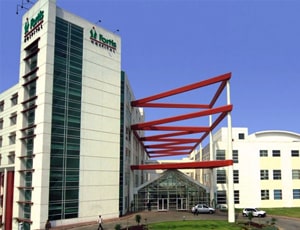
Types of Stomach Cancer Treatment in Fortis Hospital and its associated cost
| Treatment Option | Approximate Cost Range (USD) | Approximate Cost Range (INR) |
|---|---|---|
| Stomach Cancer Treatment (Overall) | 8081 - 12137 | 667262 - 995714 |
| Surgery | 4563 - 8149 | 376337 - 665307 |
| Chemotherapy | 2034 - 5062 | 166958 - 417766 |
| Radiation Therapy | 1526 - 4053 | 124523 - 334368 |
| Immunotherapy | 3035 - 7136 | 249862 - 583051 |
| Targeted Therapy | 2529 - 8103 | 207798 - 668846 |
| Palliative Care | 1013 - 3550 | 82920 - 290835 |
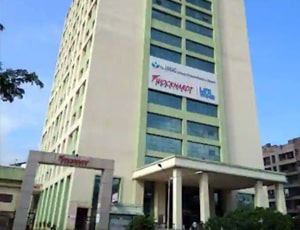
Types of Stomach Cancer Treatment in Wockhardt Hospital, Umrao and its associated cost
| Treatment Option | Approximate Cost Range (USD) | Approximate Cost Range (INR) |
|---|---|---|
| Stomach Cancer Treatment (Overall) | 8148 - 12133 | 664529 - 1003643 |
| Surgery | 4580 - 8083 | 372914 - 663547 |
| Chemotherapy | 2029 - 5068 | 166848 - 417043 |
| Radiation Therapy | 1521 - 4053 | 125293 - 331830 |
| Immunotherapy | 3031 - 7103 | 250738 - 582832 |
| Targeted Therapy | 2544 - 8124 | 208813 - 665954 |
| Palliative Care | 1011 - 3558 | 83462 - 289915 |
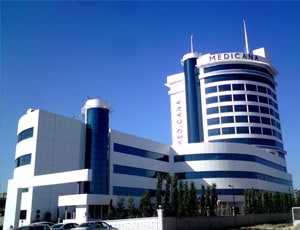
Types of Stomach Cancer Treatment in Medicana Konya Hospital and its associated cost
| Treatment Option | Approximate Cost Range (USD) | Approximate Cost Range (TRY) |
|---|---|---|
| Stomach Cancer Treatment (Overall) | 4416 - 11118 | 137198 - 342923 |
| Surgery | 3406 - 7943 | 102415 - 240418 |
| Chemotherapy | 2779 - 6881 | 84276 - 200039 |
| Radiation Therapy | 2209 - 5564 | 69154 - 168398 |
| Immunotherapy | 4530 - 8991 | 134831 - 266314 |
| Targeted Therapy | 3903 - 10135 | 119825 - 304489 |
| Palliative Care | 1719 - 4428 | 49844 - 136047 |
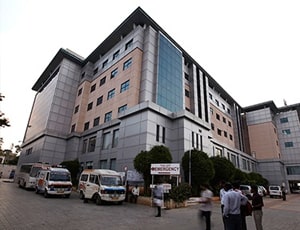
Types of Stomach Cancer Treatment in BGS Gleneagles Global Hospitals and its associated cost
| Treatment Option | Approximate Cost Range (USD) | Approximate Cost Range (INR) |
|---|---|---|
| Stomach Cancer Treatment (Overall) | 9095 - 13260 | 729889 - 1115259 |
| Surgery | 5119 - 9193 | 421314 - 743235 |
| Chemotherapy | 2277 - 5549 | 183356 - 466581 |
| Radiation Therapy | 1688 - 4478 | 140832 - 376807 |
| Immunotherapy | 3308 - 7908 | 278147 - 656484 |
| Targeted Therapy | 2842 - 9079 | 232213 - 729757 |
| Palliative Care | 1102 - 3919 | 94119 - 319020 |

Types of Stomach Cancer Treatment in Indraprastha Apollo Hospital and its associated cost
| Treatment Option | Approximate Cost Range (USD) | Approximate Cost Range (INR) |
|---|---|---|
| Stomach Cancer Treatment (Overall) | 8802 - 13393 | 728729 - 1119131 |
| Surgery | 5099 - 9052 | 416274 - 725995 |
| Chemotherapy | 2204 - 5601 | 185890 - 458226 |
| Radiation Therapy | 1680 - 4414 | 138181 - 372538 |
| Immunotherapy | 3432 - 7710 | 272686 - 635300 |
| Targeted Therapy | 2800 - 9083 | 226660 - 740452 |
| Palliative Care | 1111 - 3931 | 92968 - 320555 |
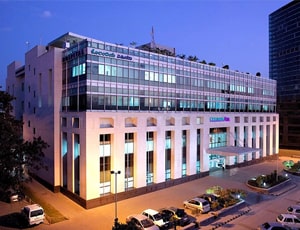
Types of Stomach Cancer Treatment in Manipal Hospital, Yeshwantpur and its associated cost
| Treatment Option | Approximate Cost Range (USD) | Approximate Cost Range (INR) |
|---|---|---|
| Stomach Cancer Treatment (Overall) | 8977 - 13585 | 736820 - 1094942 |
| Surgery | 4986 - 8865 | 423738 - 738378 |
| Chemotherapy | 2237 - 5660 | 186018 - 461053 |
| Radiation Therapy | 1713 - 4582 | 137052 - 365691 |
| Immunotherapy | 3382 - 7724 | 275260 - 632081 |
| Targeted Therapy | 2820 - 9104 | 233162 - 735873 |
| Palliative Care | 1121 - 3858 | 94280 - 324861 |
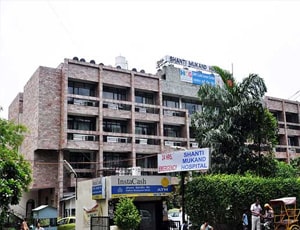
Types of Stomach Cancer Treatment in Shanti Mukand Hospital and its associated cost
| Treatment Option | Approximate Cost Range (USD) | Approximate Cost Range (INR) |
|---|---|---|
| Stomach Cancer Treatment (Overall) | 8089 - 12213 | 669012 - 999373 |
| Surgery | 4575 - 8112 | 375602 - 664708 |
| Chemotherapy | 2030 - 5056 | 165737 - 414478 |
| Radiation Therapy | 1523 - 4054 | 125199 - 333845 |
| Immunotherapy | 3039 - 7123 | 249513 - 580173 |
| Targeted Therapy | 2537 - 8128 | 208321 - 664001 |
| Palliative Care | 1013 - 3539 | 83542 - 291467 |
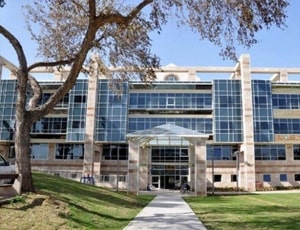
Kaplan Medical Centre located in Rehovot, Israel is accredited by JCI. Also listed below are some of the most prominent infrastructural details:
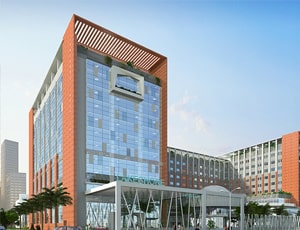
Types of Stomach Cancer Treatment in VPS Lakeshore Hospital and its associated cost
| Treatment Option | Approximate Cost Range (USD) | Approximate Cost Range (INR) |
|---|---|---|
| Stomach Cancer Treatment (Overall) | 8118 - 12228 | 665396 - 998281 |
| Surgery | 4545 - 8096 | 374179 - 663446 |
| Chemotherapy | 2028 - 5083 | 165931 - 416942 |
| Radiation Therapy | 1517 - 4066 | 124828 - 333042 |
| Immunotherapy | 3056 - 7113 | 248620 - 581443 |
| Targeted Therapy | 2537 - 8121 | 208559 - 668660 |
| Palliative Care | 1013 - 3567 | 83353 - 292244 |
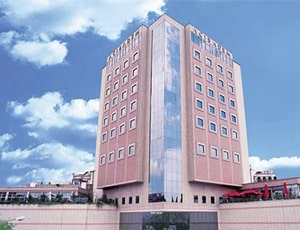
Types of Stomach Cancer Treatment in Acibadem Bakirkoy Hospital and its associated cost
| Treatment Option | Approximate Cost Range (USD) | Approximate Cost Range (TRY) |
|---|---|---|
| Stomach Cancer Treatment (Overall) | 4436 - 11085 | 133252 - 343887 |
| Surgery | 3431 - 7939 | 99942 - 237428 |
| Chemotherapy | 2791 - 6883 | 84312 - 207395 |
| Radiation Therapy | 2271 - 5555 | 68496 - 169503 |
| Immunotherapy | 4452 - 9190 | 133115 - 274278 |
| Targeted Therapy | 3967 - 10028 | 117878 - 299940 |
| Palliative Care | 1696 - 4404 | 51785 - 132720 |
The proliferation of cancer cells in the stomach that gets out of control is known as stomach cancer, also known as gastric cancer. The tumor can grow anywhere in the stomach. The majority of stomach cancer occurrences are caused by abnormal cell development at the gastroesophageal junction, the area where your stomach and esophagus connect. The main part of the stomach is where cancer typically develops in other nations where gastric cancer is more prevalent.
Stomach cancer develops in the lining of your stomach around 95% of the time and spreads gradually. If left untreated, it may develop into a tumor that grows further into the walls of the stomach. The pancreas and liver are two adjacent organs where the tumor may spread.
Types of stomach cancer:
What are the stages of Stomach Cancer?
Usually, stomach cancer develops in several stages, each of which represents the disease's severity and spread. The general phases of stomach cancer are as follows:
Staging helps in deciding on the best course of action and prognosis for patients with stomach cancer. It's crucial to remember that staging might change based on the unique features of the malignancy as well as specific patient characteristics.
What causes Stomach Cancer?
Although stomach cancer can happen to anyone, some demographic parameters may make you more susceptible. Stomach cancer is more likely to strike if:
The prognosis of stomach cancer is contingent upon multiple circumstances, such as the disease's stage at diagnosis, the treatment regimen employed, and the patient's general state of health. Overall, the recovery process from stomach cancer is unique and involves interdisciplinary treatment from surgeons, oncologists, dietitians, and other medical specialists. Remission, symptom management, and improved quality of life are the objectives for those afflicted with stomach cancer.
Ask your healthcare adviser for the best multiple options and choose the one that meets your expectations
On an average, Stomach Cancer Treatment in South Africa costs about $28500. There many COHSASA certified hospitals in South Africa that offer Stomach Cancer Treatment
The cost of Stomach Cancer Treatment in South Africa may differ from one medical facility to the other. The Stomach Cancer Treatment package cost usually includes all the expenses related to pre and post surgery expenses of the patient. The treatment cost usually includes the expenses related to hospitalization, surgery, nursing, medicines, and anesthesia. A prolonged hospital stay due to delayed recovery, new diagnosis and complications after surgery may increase the cost of Stomach Cancer Treatment in South Africa.
There are several best hospitals for Stomach Cancer Treatment in South Africa. The following are some of the most renowned hospitals for Stomach Cancer Treatment in South Africa:
After discharge from the hospital, the patient has to stay for another 28 days in the country for complete recovery. This time frame is important to ensure that the surgery was successful and the patient is fit to fly back.
There are certain expenses additional to the Stomach Cancer Treatment cost that the patient may have to pay for. These are the chanrges for daily meals and hotel stay outside the hospital. The per day extra expenses in South Africa per person are about USD 50 per person.
Some of the best cities in South Africa which offer Stomach Cancer Treatment are:
The average duration of stay at the hospital after Stomach Cancer Treatment is about 5 days for proper care and monitoring. This phase is important to ensure that the patient is recovering well and is clinically stable. During this time, several tests are performed before the patient is deemed suitable for discharge.
The average rating for Stomach Cancer Treatment hospitals in South Africa is 2.9. This rating is calculated on the basis of different parameters such as attitude of the nurses, cleanliness, quality of food and the pricing policy.
There are more than 2 hospitals that offer Stomach Cancer Treatment in South Africa. Such clinics have the required infrastructure and a dedicated unit where patients can be treated. Such hospitals follow all legal protocols and guidelines as specified by the local medical affairs body when it comes to the treatment of international patients.
Some of the best doctors for Stomach Cancer Treatment in South Africa are: